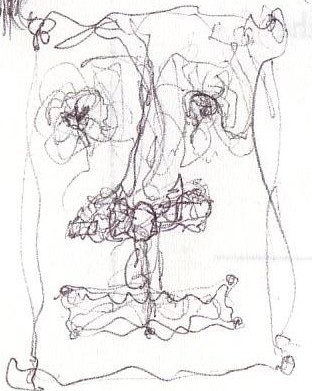You'd create a persuasion model
"Hull is most animated by those aspects of campaigning that can be quantified and formulated. "Politics is very unpredictable," he told me. "More so than blackjack." I asked if he really could write an algorithm to help win the election. His face lit up, and his press secretary winced. "Sure!" he replied. He reached for my notebook and began scribbling as he spoke: "You'd create a persuasion model based on canvassing that says 'the probability of voting for Hull is ...' plus some variable on ethnicity ... with a positive coefficient on age, a negative coefficient on wealth, and that gives us an equation ..." Sure enough, a lengthy equation unfolded across the page that to my untrained eye looked like part of the human genetic code:
Probability = 1/(1 + exp (−1 * (−3.9659056 + (General Election Weight * 1.92380219) + (Re-Expressed Population Density * .00007547) + (Re-Expressed Age * .01947370) + (Total Primaries Voted * −.60288595) + (% Neighborhood Ethnicity * −.00717530))))
Hull looked pleased. "That's the kind of innovation I will bring to problems in the United States Senate."
Probability = 1/(1 + exp (−1 * (−3.9659056 + (General Election Weight * 1.92380219) + (Re-Expressed Population Density * .00007547) + (Re-Expressed Age * .01947370) + (Total Primaries Voted * −.60288595) + (% Neighborhood Ethnicity * −.00717530))))
Hull looked pleased. "That's the kind of innovation I will bring to problems in the United States Senate."


0 Comments:
Post a Comment
<< Home